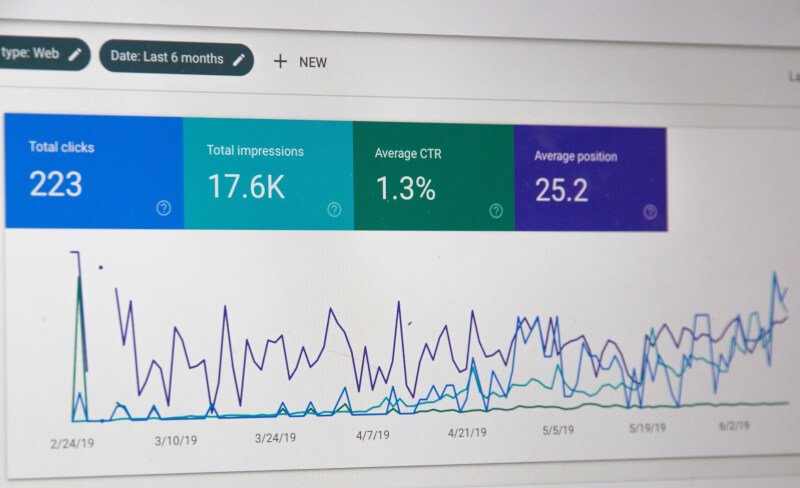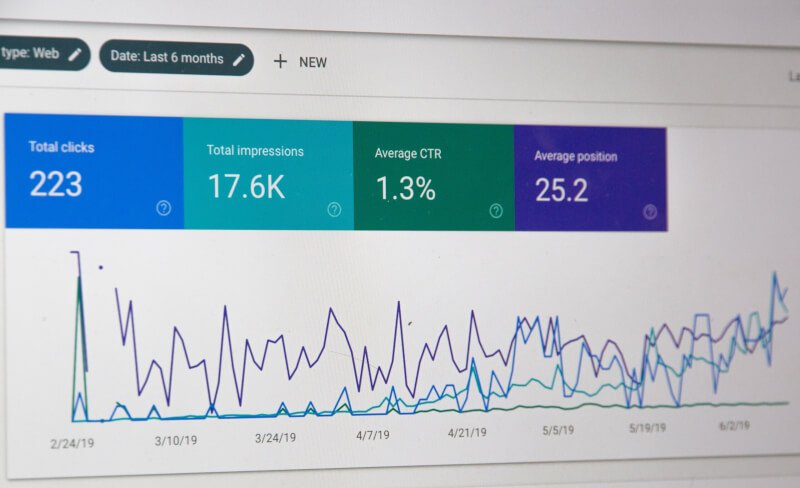In today’s ever-evolving gig economy, where freelancers and independent workers are redefining traditional employment, a new way of making money has emerged – affiliate marketing. With its flexible nature and potential for substantial earnings, affiliate marketing has swiftly gained popularity among individuals looking to supplement their income or embark on a full-fledged online business venture. This article explores the rise of affiliate marketing in the gig economy, delving into its benefits, challenges, and the opportunities it presents for enterprising individuals like yourself. So, grab your digital devices and get ready to explore this exciting world of online entrepreneurship!

Definition of affiliate marketing
Affiliate marketing refers to a performance-based marketing strategy where individuals, known as affiliates, promote products or services on behalf of a company in exchange for a commission. It is a mutually beneficial arrangement where affiliates earn income through successful referrals, while companies increase their sales and reach through the efforts of these affiliates. This form of marketing often takes place online, making it accessible to a wide range of individuals looking to earn an income in the gig economy.
How affiliate marketing works
In affiliate marketing, affiliates leverage their online platforms, such as websites, blogs, or social media accounts, to promote products or services using unique referral links. When a consumer clicks on an affiliate’s referral link and makes a purchase or takes a specific action, the affiliate earns a commission. The tracking of these referrals and commissions is typically facilitated by affiliate marketing platforms, which provide affiliates with the necessary tools to manage their campaigns and track their earnings.
The gig economy and its impact
The gig economy, characterized by short-term or freelance work arrangements, has experienced significant growth in recent years. Many individuals are now opting for gig work as it offers flexibility, autonomy, and the opportunity to earn income outside the traditional 9-to-5 job model. This influx of gig workers has created a vast pool of potential affiliates who can leverage their online presence to generate income through affiliate marketing. The gig economy has, therefore, contributed to the rise and success of affiliate marketing.
Opportunities for affiliate marketing in the gig economy
The gig economy presents numerous opportunities for individuals to explore affiliate marketing as a viable income source. With the flexibility that gig work offers, individuals can invest their time and resources in building an online presence, such as a blog or social media following, and use that platform to engage their audience and promote relevant products or services. Affiliate marketing offers gig workers the chance to monetize their online presence and earn passive income, as their content continues to reach and engage audiences even when they are not actively working.

Advantages of affiliate marketing in the gig economy
Affiliate marketing in the gig economy offers several advantages for both affiliates and companies. For affiliates, it provides a low-risk opportunity to earn income without the need for large upfront investments. They can choose products or services that align with their personal interests and expertise, making it a more fulfilling way to earn money. Additionally, the flexibility of affiliate marketing allows individuals to work on their own terms, without the constraints of a traditional job.
For companies, affiliate marketing provides a cost-effective way to expand their reach and increase sales. By leveraging the networks and audiences of affiliates, companies can tap into niche markets and target specific customer segments. This allows for more personalized marketing efforts, which often result in higher conversion rates. Furthermore, affiliate marketing provides companies with a performance-based marketing strategy, where they only pay for tangible results, ensuring a return on investment.
Challenges of affiliate marketing in the gig economy
While affiliate marketing in the gig economy presents numerous opportunities, it also comes with its fair share of challenges. One of the main challenges faced by affiliates is the oversaturation of the market. With the growing popularity of affiliate marketing, many individuals are joining the field, leading to increased competition and a higher barrier to entry for newcomers. Affiliates must find creative strategies to differentiate themselves and stand out amidst the sea of affiliates vying for consumer attention.
Another challenge is the potential for unethical practices within affiliate marketing. Some affiliates may resort to spamming, false advertising, or unethical tactics to boost their earnings. This can harm the reputation of both the affiliate and the company they are promoting. To mitigate this challenge, affiliate marketing platforms and companies must enforce strict guidelines and monitor affiliate activities to ensure compliance with ethical standards.

Successful affiliate marketing platforms in the gig economy
In the gig economy, several affiliate marketing platforms have emerged as successful facilitators of affiliate partnerships. One such platform is Amazon Associates, which allows affiliates to promote products from the vast Amazon marketplace. With Amazon’s reputation and extensive product range, affiliates can earn substantial commissions by referring customers to purchase products on the platform.
Another successful platform is ShareASale, which connects affiliates with a wide array of companies across various industries. ShareASale provides affiliates with a user-friendly interface, real-time tracking, and regular commission payouts, making it an attractive option for gig workers looking to venture into affiliate marketing.
Strategies for successful affiliate marketing in the gig economy
To thrive in the gig economy as an affiliate marketer, it is essential to adopt effective strategies that maximize earnings and audience reach. First and foremost, affiliates should focus on building a strong online presence and engaging their audience through valuable content. By establishing themselves as trusted and knowledgeable sources within their niche, affiliates can gain the loyalty and trust of their audience, resulting in higher conversion rates.
Additionally, affiliates should carefully select products or services to promote. It is crucial to align with brands and offerings that resonate with their audience and are of high quality. By recommending products that genuinely add value to their audience’s lives, affiliates can enhance their credibility and foster long-term relationships.
Moreover, diversifying income sources is an advisable strategy for affiliate marketers. Relying solely on one affiliate program or platform may pose risks, especially if that program undergoes changes or becomes less profitable. By partnering with multiple affiliate programs or exploring different revenue streams, affiliates can mitigate potential risks and maximize their earnings in the gig economy.

Tools and technologies for affiliate marketing in the gig economy
In the gig economy, various tools and technologies are available to assist affiliate marketers in their campaigns. One such tool is affiliate tracking software, which allows affiliates to accurately track their referrals, earnings, and conversion rates. This data provides valuable insights into the effectiveness of their marketing efforts, enabling them to optimize their strategies for better results.
Content management systems (CMS), such as WordPress, also play a crucial role in affiliate marketing. These platforms offer easy website creation and management, allowing affiliates to showcase their content and affiliate links in an appealing and user-friendly manner. CMS platforms often have plugins specifically designed for affiliate marketing, enabling affiliates to integrate their referral links seamlessly into their website or blog.
Future trends in affiliate marketing and the gig economy
As the gig economy continues to grow and evolve, the future of affiliate marketing looks promising. One significant trend that is likely to shape the industry is the rise of influencer marketing. Influencers, who have established themselves as authorities in specific niches, can leverage their large following and credibility to promote products or services effectively. Affiliate marketing offers influencers an additional revenue stream, as they can earn commissions through the referral links they share with their audience.
Furthermore, advancements in technology, such as artificial intelligence and data analytics, will enable companies and affiliates to target and personalize their marketing efforts even further. With enhanced tracking capabilities and deeper insights into consumer behavior, affiliate marketing will become more tailored, resulting in higher conversion rates and increased profitability.
In conclusion, the rise of affiliate marketing in the gig economy has opened up new opportunities for individuals seeking flexible income-generating options. With its performance-based structure and accessibility through online platforms, affiliate marketing allows gig workers to monetize their online presence and earn income while working on their own terms. While challenges exist, strategic approaches, supported by effective tools and technologies, can lead to success in the affiliate marketing industry. With future trends indicating further growth and innovation, affiliate marketing and the gig economy are set to continue their symbiotic relationship, benefiting both affiliates and companies alike.



